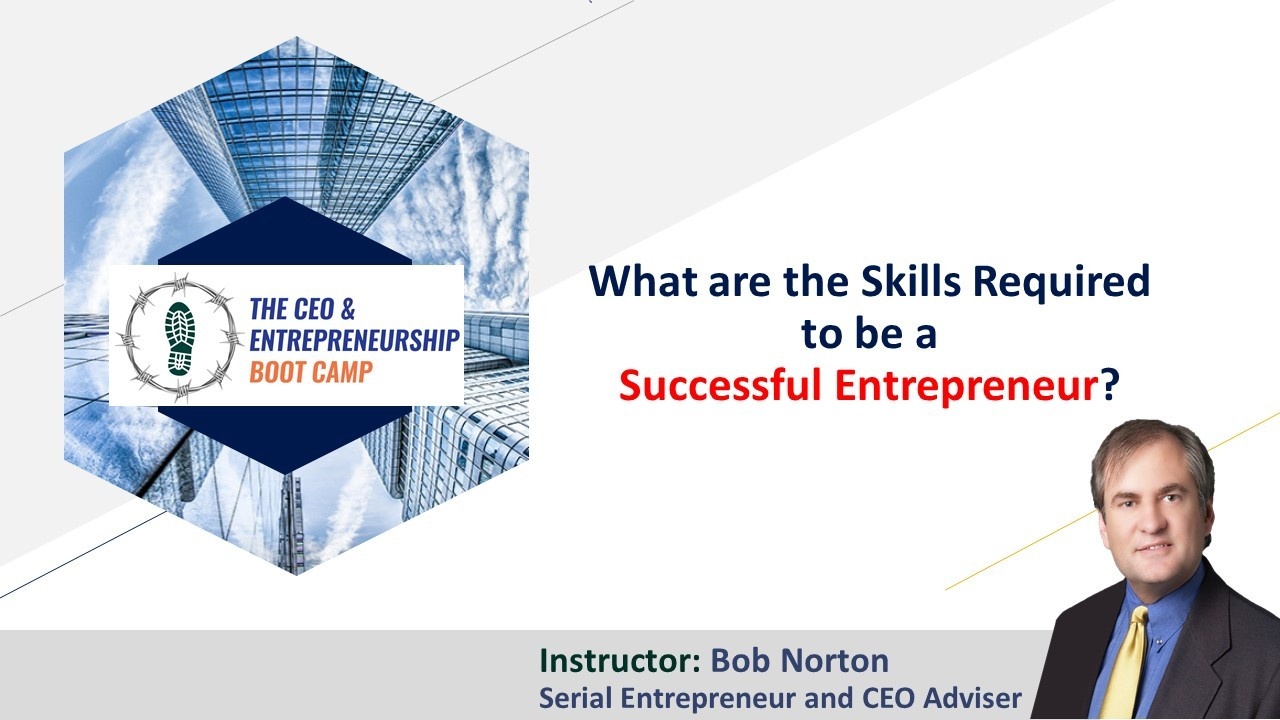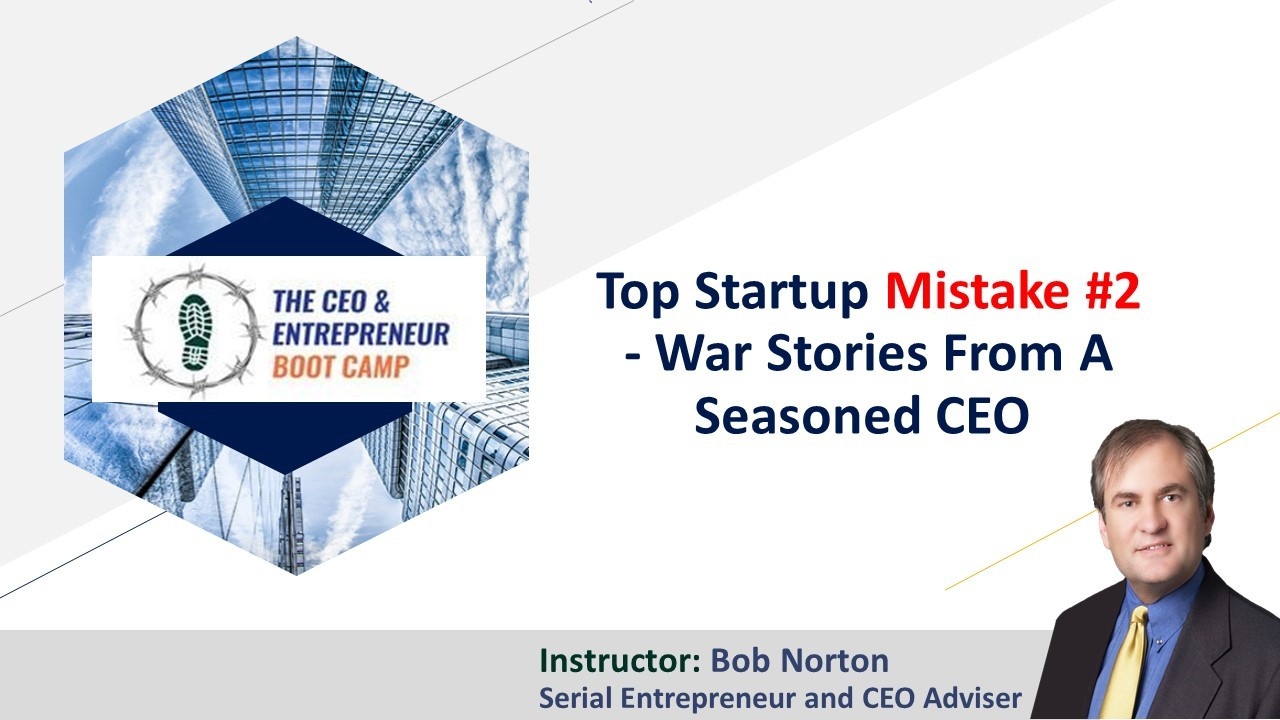The Twelve (Almost) *Sure-fire Secrets To Entrepreneurial Success

Venture capitalists are not known for their humility, so take note of the following confession:
Venture capitalists are chickens. Compared to entrepreneurs, they're spectators in the great game of small business hardball. They would no sooner personally guarantee a corporate bank loan than they would jump off the cliffs of Acapulco. Contrary to popular opinion, however, they are not totally worthless - they work long hours, sift through more garbage than a trash collector, and have to get used to disappointing 99 entrepreneurs for everyone they please. They are veteran roller coaster riders, but never get used to those big drops. They are, above all else, risk reducers - they prospect in the land of the commercially unfaceable, and try to differentiate the superstars from the merely enthusiastic. Most of them are pretty good at it, a result of lessons learned, mistakes made, and successes observed.
Over the past 29 years as a venture capitalist, I've screened thousands of...
What Does A CEO Need To Know?

Why You Always Need An Experienced CEO Involved At Some Level
Would you walk into a legal trial without an experienced attorney to represent you? Would you let a new medical school graduate perform their first brain surgery on you alone? Of course not!? However, many entrepreneurs who start a company print “President” on the door and do just that. They tackle huge new problems without any experience as a CEO in one of the most complex, expensive, and risky things they will ever do! So they think they save money, but they often drive their risk up 1,000% and costs 10% to 100% or more!
Consultants are plentiful, the advice is easy to get, it can be free or VERY expensive, but is it from someone who has succeeded in the past doing exactly that job? Not just as a ‘consultant’ but with full responsibility for success? In this environment, mistakes can be fatal, so don’t make this mistake.
No wonder only 6 in 1,000,000 ideas will ever reach an IPO. Contrary...
68 CEO Responsibilities

This is a great list for both taking on a new CEO position and getting up to speed, as well as to develop a proactive development and learning program for any CEO or senior executive wishing to improve their executive management skills. It lays out well all the things you need to juggle when you have both the privilege and responsibilities of the top spot in any organization.
General Operations
1. Establish primary goals of the Board -- maintenance of status quo, evaluation, and recommendations or take charge through the implementation of the new game plan.
2. Meet all first-reports, introduce the game plan and initiate implementation of action items on this list.
3. Have all first-reports complete the Agenda for the Future.
4. Discuss the dozen biggest problems and opportunities from the perspective of all first-reports.
5. If survival mode is required, cut costs immediately where necessary and prudent and in accordance with the Board's short and intermediate-term goals.
6. Identify and...
How Do You Compete with a Company Doing the Same Thing as You?

The short answer is you never should. You should slightly adjust your business model or target market to be differentiated. Read this article to learn how.
A startup should never really have a direct competitor. Its target market, where it can do something that others cannot, must be unique at the start to establish a beachhead in a niche. You need to target another niche market (often an intersection and application and industry sector) where you have a Sustainable Competitive Advantage (SCA).
Sometimes geography can be this difference if a service is delivered locally, or you are going after a country where a new service does not yet exist (i.e. Starbucks). However, this is less powerful than proprietary product and service capabilities that others do not have long-term. You could be attacked locally at any time, even by ex-employees you trained who leave. It is also possible and better to layer in other SCAs over time. First to market can give you advantages like...
What's the difference between a CEO and a COO?

Easy. COOs deal with short-term management and daily, weekly and monthly issues. This is the “Care and feeding” of employees to coordinate resources and track results. CEOs work more on the long-term from 1 to 5 years out. CEOs also spend their time, maybe as much as 50%, on proper staffing at the management level, coaching this team up and developing these managers to grow professionally to take on more responsibility with that growth. Often the CEO will spend 50% of their time divided between: Strategy development, customer contact (direct input), and optimizing processes for marketing, sales and finance. In smaller companies where there is no full-time CFO 50% of a CEO’s can go to fundraising at times too. So, you can see how many situations can require more people power.
Typically, a CEO and COO are not both needed until a company exceeds 50 employees, but there are many factors. Some Founder/Owners also lack the management skills, patience or detail...
Why Do Founders Often Fail as CEOs?

Because being a CEO of a startup is the most complex job there is today. People greatly underestimate what it takes to be successful. It takes at least 10 and more likely`5+ years' experience to accumulate the experience needed for a high chance of success.
Here is a list of the skills we teach at The CEO & Entrepreneur Boot Camp:
1. Recruiting
2. Management
3. Marketing & Branding
4. Product Development & Innovation
5. Operations, customer services
7. Sales
8. Raising capital
9. Leadership
10. Competitive Intelligence
11. Market Research
12. Vision
13. Competitive Strategy
14. Organizational Development (OD)
15. Industry/domain expertise
 | Learn more about our Growth and Scaling (GSP) |
| For a free video consultation call on what your |
Now the CEO does not need to be expert in these, but that expertise is needed on a team and they need to understand how to manage...
When Should You Stop Making Developing the MVP and Start Building the Actual Product?

I created a short video series answering this exact question that you can view for free here called The Entrepreneur’s Journey. An MVP's goals list should provide all the data to answer that question (example below for AirBnB). Your first job is creating that list. Long before you start building a product.
The purpose of an MVP is to get real-world customer feedback. However, you will need to run the financials to balance what the budget can be to build it. And to market test it too. Technical founders often greatly underestimate the cost and time needed for marketing. It can even be more than the product build.
Your MVP goal is simple: Prove the customer will buy and like the product at a particular price point.
And that you can acquire those customers cost effectively given the margins.
The next version could be a big step, or even many incremental releases depending on the feedback, technology and financial...
Can a CEO and CTO Have the Same Level of Authority in a Tech Company?

Absolutely not. The President is a legally defined position with all kinds of legal rights and responsibilities. Every other officer serves “her pleasure” maybe with some contract for termination rights.
Many President rights and responsibilities can vary by state and/or the company’s charter, but always way above any other Officer. It is where the “buck stops”. Anyone who is a Vice President or Officer can sign a legal contract or document for a company, binding the company legally. And should have mostly discretion in their area of the business, but that has limits, and a President can always override any decision of any other executive. Officer or not. That’s about it.
A CEO should, but does not always, have a vast array of skills beyond any VP or CTO. Most staff members member's knowledge is very focused on one area. That means they are unqualified to make decisions in most other areas. Just give some input. The CEO is more of a generalist and...
What are the Skills Required to be a Successful Entrepreneur?

Below is a list of the skills we teach at The CEO & Entrepreneur Boot Camp. Lacking any one of them can kill a company or doom it to the “living dead” barely surviving. No one builds a successful business alone, though. It requires a team.
Only about 1 in 17,000 companies reaches $100M. Only 0.4% will break even $10 million. This is because the larger the company gets, till a certain point, the more skills you need. Companies over 100 people then become easier and easier to run because the systems, people and teams are in place. Startup CEO is the hardest job in the world. And also, the most valuable skills. Every billionaire self-made learned these skills.
Yet most young, naive Entrepreneurs dream of building that $1 billion company. Not going to happen except in very rare circumstances that combine lots of skill, experience and a great team with some luck too.
Any good CEO needs to be good at these things, which take years' experience to develop. They are all...
Top Startup Mistake #2 - War Stories From A Seasoned CEO

Understanding Capital Expenditures and Their Real Cost
During my first week at a company I had just joined as President, I was asked to approve the purchase of a $250,000 piece of hardware. The operations people, all from larger companies, were desensitized to the cost of capital and its accessibility. They wanted to buy this $250,000 piece of hardware to be ready for the flood of customers "coming soon." The CFO had been convinced by the technical staff that the world would fall apart without this equipment, and we could never serve any customers "correctly." The logic was that they needed months to install it, and we were coming out of beta test soon. So, time was running out! The reality was they wanted the latest and greatest systems and near 0% risk for these non-existent customers and themselves personally, with little weight given to the huge cost.
In fact, the beta test was very limited and probably needed much more time, and the capacity already...




